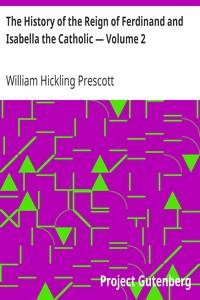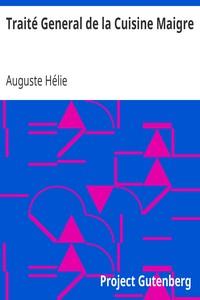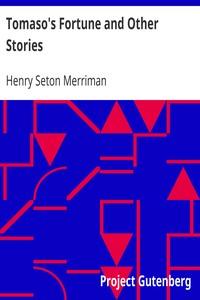Read this ebook for free! No credit card needed, absolutely nothing to pay.
Words: 150785 in 33 pages
This is an ebook sharing website. You can read the uploaded ebooks for free here. No credit cards needed, nothing to pay. If you want to own a digital copy of the ebook, or want to read offline with your favorite ebook-reader, then you can choose to buy and download the ebook.


: The History of the Reign of Ferdinand and Isabella the Catholic — Volume 2 by Prescott William Hickling - Ferdinand V King of Spain 1452-1516; Isabella I Queen of Spain 1451-1504; Spain History Ferdinand and Isabella 1479-1516
PART FIRST.
PART SECOND.
THE PERIOD WHEN, THE INTERIOR ORGANIZATION OF THE MONARCHY HAVING BEEN COMPLETED, THE SPANISH NATION ENTERED ON ITS SCHEMES OF DISCOVERY AND CONQUEST; OR THE PERIOD ILLUSTRATING MORE PARTICULARLY THE FOREIGN POLICY OF FERDINAND AND ISABELLA.
PART FIRST.
INTERNAL AFFAIRS OF THE KINGDOM.--INQUISITION IN ARAGON.
Isabella enforces the Laws.--Punishment of Ecclesiastics.--Inquisition in Aragon.--Remonstrances of the Cortes.--Conspiracy.--Assassination of the Inquisitor Arbues.--Cruel Persecutions.--Inquisition throughout Ferdinand's Dominions.
In such intervals of leisure as occurred amid their military operations, Ferdinand and Isabella were diligently occupied with the interior government of the kingdom, and especially with the rigid administration of justice, the most difficult of all duties in an imperfectly civilized state of society. The queen found especial demand for this in the northern provinces, whose rude inhabitants were little used to subordination. She compelled the great nobles to lay aside their arms, and refer their disputes to legal arbitration. She caused a number of the fortresses, which were still garrisoned by the baronial banditti, to be razed to the ground; and she enforced the utmost severity of the law against such inferior criminals as violated the public peace.
Even ecclesiastical immunities, which proved so effectual a protection in most countries at this period, were not permitted to screen the offender. A remarkable instance of this occurred at the city of Truxillo, in 1486. An inhabitant of that place had been committed to prison for some offence by order of the civil magistrate. Certain priests, relations of the offender, alleged that his religious profession exempted him from all but ecclesiastical jurisdiction; and, as the authorities refused to deliver him up, they inflamed the populace to such a degree, by their representations of the insult offered to the church, that they rose in a body, and, forcing the prison, set at liberty not only the malefactor in question, but all those confined there. The queen no sooner heard of this outrage on the royal authority, than she sent a detachment of her guard to Truxillo, which secured the persons of the principal rioters, some of whom were capitally punished, while the ecclesiastics, who had stirred up the sedition, were banished the realm. Isabella, while by her example she inculcated the deepest reverence for the sacred profession, uniformly resisted every attempt from that quarter to encroach on the royal prerogative. The tendency of her administration was decidedly, as there will be occasion more particularly to notice, to abridge the authority which that body had exercised in civil matters under preceding reigns.
Nothing of interest occurred in the foreign relations of the kingdom, during the period embraced by the preceding chapter; except perhaps the marriage of Catharine, the young queen of Navarre, with Jean d'Albret, a French nobleman, whose extensive hereditary domains, in the southwest corner of France, lay adjacent to her kingdom. This connection was extremely distasteful to the Spanish sovereigns, and indeed to many of the Navarrese, who were desirous of the alliance with Castile. This was ultimately defeated by the queen-mother, an artful woman, who, being of the blood royal of France, was naturally disposed to a union with that kingdom. Ferdinand did not neglect to maintain such an understanding with the malcontents of Navarre, as should enable him to counteract any undue advantage which the French monarch might derive from the possession of this key, as it were, to the Castilian territory.
The other circumstance worthy of record, but not in like manner creditable to the character of the sovereign, is the introduction of the modern Inquisition into Aragon. The ancient tribunal had existed there, as has been stated in a previous chapter, since the middle of the thirteenth century, but seems to have lost all its venom in the atmosphere of that free country; scarcely assuming a jurisdiction beyond that of an ordinary ecclesiastical court. No sooner, however, was the institution organized on its new basis in Castile, than Ferdinand resolved on its introduction, in a similar form, in his own dominions.
Measures were accordingly taken to that effect in a meeting of a privy council convened by the king at Tara?ona, during the session of the cortes in that place, in April, 1484; and a royal order was issued, requiring all the constituted authorities throughout the kingdom to support the new tribunal in the exercise of its functions. A Dominican monk, Fray Gaspard Juglar, and Pedro Arbues de Epila, a canon of the metropolitan church, were appointed by the general, Torquemada, inquisitors over the diocese of Saragossa; and, in the month of September following, the chief justiciary and the other great officers of the realm took the prescribed oaths.
The new institution, opposed to the ideas of independence common to all the Aragonese, was particularly offensive to the higher orders, many of whose members, including persons filling the most considerable official stations, were of Jewish descent, and of course precisely the class exposed to the scrutiny of the Inquisition. Without difficulty, therefore, the cortes was persuaded in the following year to send a deputation to the court of Rome, and another to Ferdinand, representing the repugnance of the new tribunal to the liberties of the nation, as well as to their settled opinions and habits, and praying that its operation might be suspended for the present, so far at least as concerned the confiscation of property, which it rightly regarded as the moving power of the whole terrible machinery.
Free books android app tbrJar TBR JAR Read Free books online gutenberg
More posts by @FreeBooks

: Traité General de la Cuisine Maigre Potages entrées et relevés entremets de légumes sauces entremets sucrés traité de hors d'oeuvre et savoureux by H Lie Auguste - Cooking French; Lenten menus; Fasts and feasts France FR Sciences et Techniques; Cook







